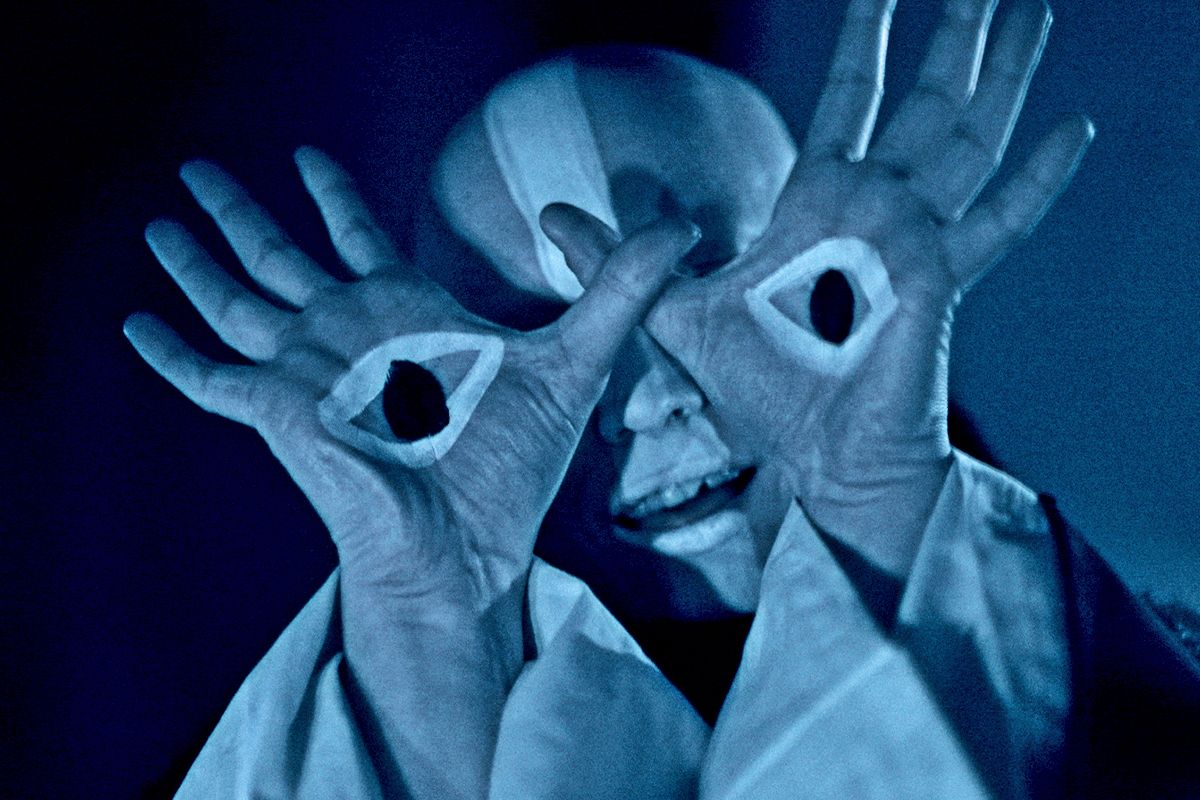
ALL YOU NEED IS DEATH: “an essential addition to the folk horror canon”
As well as my various activities as a writer/commentator and novelist, I'm currently co-director of development for movie/TV production company 1185 Films, who have the Irish Folk Horror film ALL YOU NEED IS DEATH released this year.
Paul Duane’s forthcoming All You Need is Death, meanwhile, pulls mythology and superstition into the contemporary sphere by telling the story of a young couple, Anna and Aleks, who collect old folk ballads to sell to collectors. When they secretly record an ancient taboo and previously undocumented folk song, they get more than they bargained for; one reviewer has already called the film “an essential addition to the folk horror canon”.
Delve into the world of uniquely Irish supernatural creatures and ‘cursed’ songs
These include:
The Banshee: Most famous of the Emerald Isle’s spectral entities, said to be female spirit whose keening, shrieking and wailing heralds the death of a family member immortalized on film - and as a Marvel X-Men character.
The Leprechaun: Painted nowadays in the movies as an evil/violent entity rather than the affable ‘pot of gold’ hiding sprite of legend.
Ellén Trechend: A three-headed monster.
The Púca: Dark or white fur/haired goblin shapechangers - horses, goats, hares, cats, and dogs. They also take human forms - but with certain animal features, such as a tail or a pointy ears.
The Dullahan: A headless rider on a black horse, who carries his noggin in his hand or under his arm. The apparition can also be a headless coachman:
Fomorians: Evil albino aggressive beings said to come from under the sea or the earth. The first settlers of Eire.
Cymidei Cymeinfoll: An Irish giantess who gave birth to a fully formed and armed warrior every six weeks.
Merrow: The Irish version of Mermaids or Mermen
Pig-Faced Women: Cursed by a witch, a woman with a porker’s head, an oft-told story supposedly based on fact - the case of Dubliner Griselda Steevens (1653 – 1746); was claimed that while pregnant with Griselda, Steevens' mother had said "take away your litter of pigs!" to a woman beggar asking for money to feed her offspring, and the child had then been born with the head and face of a pig.
Selkie: creatures that can shapeshift between seal and human by removing/donning their seal skins.
Werewolves of Ossory: the descendants of a legendary figure named Laignech Fáelad who became skinchangers.
Sluagh: the hosts of the ‘unforgiven dead’.
And some eerie Irish chillers...firstly, Return to Glennascaul (1953)- ‘a tale told in Dublin’ recounted to Mr Orson Welles:
More Banshees:
And a spookily comic tale from 2019:
Eerie examples of ‘cursed’ songs
Returning to the subject of supposedly ‘cursed’ songs? Each of this selection has its own particular story...
Garry Owen - The tune played by the Seventh Cavalry as the rode to Custer's Last Stand and by the Scottish regiments during the hardest fighting of The Crimean War.
Crossroads - Robert Johnson sells his soul to a Crossroads Demon in an episode titled "Crossroad Blues".
Without You - Songwriters Pete Ham and Tom Evans (Badfinger) received very few royalties due to being ripped off by manager Stab Polley. Ham and Evans committed suicide, with Ham personally blaming Polley in his suicide note. Cursed or just ripped off?
Dead Man's Curve - Jan & Dean. Two years after the 1964 car-crash themed tune was a hit, the group’s songwriter Jan Berry was involved in an accident similar the one in the song, leaving him with severe brain injuries and derailing his career.
El Degüello (Slit Throat) - Mexican general Santa Anna had this tune played to the defenders of The Alamo, meaning no quarter to be given.
Various Ninth Symphonies- Legend says that soon after completing his/her ninth symphony, the composer will cark it; witness Mahler, Beethoven, Anton Bruckner, Schubert, Vaughan Williams, and Antonin Dvorak.
Gloomy Sunday - Hungarian Rezső Seress’ 1933 melancholy lament was an overnight success, but then suicides began occurring all over the place. The deceased were found clutching the song’s sheet music, others left behind suicide notes with lyrics from the song. One body was found with the tune skipping endlessly on a record player. A fellow shot himself after complaining that he couldn’t get the song out of his head.
Unsurprisingly the dirge became known as the “Hungarian Suicide Song.” Sadly, Seress also topped himself. He survived jumping out of a window in Budapest, but choked himself to death with a wire in hospital. The woman who’d left him and inspired the song, also took her own life.
Helter Skelter - The Beatles proto heavy metal headbanger, forever associated with the notorious Manson Murders:
Piano Sonata No 6 - Composer Alexander Scriabin’s self described 1911 ‘Satanic’ piece he never performed in public.
Ghost Variations - Robert Schumann’s last ever composition apparently drove him insane and into the nearest lunatic asylum.
I Love You - Barney the Dinosaur’s song used by the CIA as part of ‘enhanced interrogation’. See also the Spice Girls in Small Soldiers (1998).
El Silbon’s Whistling - South American story of patricidal revenge; the strange whistle means the listener will soon snuff it.
The Glass Harmonica - Benjamin Franklin’s 1741 invention sent performers and audiences nuts.
And, if not exactly cursed, the songs used in the quintessential folk horror movie, The Wicker Man (1973), including this unsettling tune, Corn Rigs, performed by Paul Giovanni:
Lastly, a ‘real’ vampire singing with his group in Queen of The Damned (2002):
My Roman-era novel - available now on Amazon Kindle:
https://www.amazon.co.uk/Great-One-Secret-Memoirs-Pompey-ebook/dp/B0BNLTB2G7


No comments:
Post a Comment